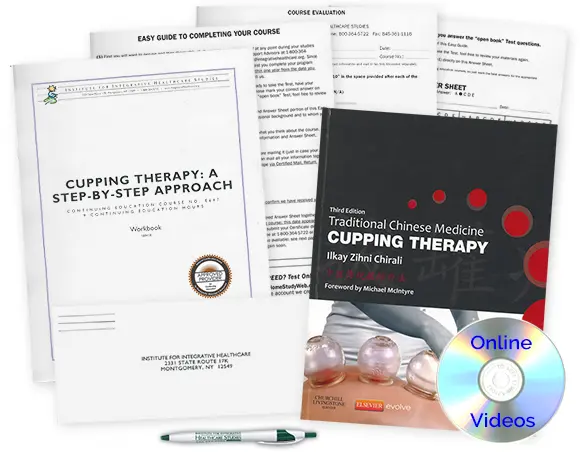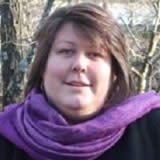
Approved for LIVE hours for Florida's 2025 renewal
As a massage therapist you are constantly looking for new techniques to add to your practice in order for you to keep improving and widening your skill set and to provide more choices for relief, relaxation, and healing to your clients. One technique, cupping therapy, has recently become a topic of discussion. Many massage professionals are finding clients now asking about cupping massage. Whether the client is simply curious about what cupping entails, its benefits, or whether it would be an appropriate treatment for them, you should want to be able to answer your client's questions with confidence and certainly provide the treatment, too!
Cupping Therapy: A Step-by-Step Approach examines over 30 different disorders and common sports injuries from a Traditional Chinese Medicine (TCM) perspective and discusses the role of cupping in assisting each condition.
Our course offers you a look at the historical use of TCM cupping in folk medicine, a review of TCM theoretical principles and gives you step-by-step guidelines for the twelve methods of TCM cupping therapy utilized in Traditional Chinese Medicine today. Safety precautions, contraindications, and the use of cupping for treating trigger points are also discussed.
You will explore the role of cupping in a variety of clinical contexts – ranging from the treatment of children to the effective management of sports injuries and myofascial pain. Our well-established, highly successful course text provides you with a a useful step-by-step approach to the effective application of traditional cupping techniques with special emphasis on issues of safety, expectation and theoretical principles of action.
This course will present information on:
To further support your learning, online 'how to' videos and downloadable images are also available to complement the course text.
Ericka Napoli, LMT, BCTMB
3/24/2025
Kimberly E. Krueger, LMT
3/7/2025
Carrie Imperato, LMT
2/24/2025
Heather Noonan, LMT
2/13/2025
Christi Hanner, LMT
2/10/2025

Leslie L. DeMatteo, LMT, MS, has been an active massage therapist since 1998, after graduating from the Sarasota School of Massage Therapy in Sarasota, FL. There she completed the massage therapy program along with a certificate program in Nuad-Bo-Rarn: Traditional Massage of Thailand.
Since then, she has completed continuing education in cranial-sacral fundamentals, cancer and mastectomy massage, reflexology, trigger point therapy and prenatal massage. She is also certified by the National Certification Board for Therapeutic Massage and Bodywork (NCBTMB) and is a Professional Level member of Associated Bodywork and Massage Professionals (ABMP).
Her work in massage therapy continuing education and teaching in a massage school ignited a passion for adult training and education, which led her to pursue her Bachelor's Degree in Adult Learning: Vocational Instruction, followed by her a Master's Degree in Adult Learning.
Ms. DeMatteo is the instructor for many of the Institute's courses including such courses as Advanced Prenatal Massage, Ethics of Diversity. Cupping Therapy: A Step-by-Step Approach, Diversity: Cultural Competence, Mastering Pregnancy Massage, and many more.


Take our free online course: Ethics Refresher
We will not rent/sell your email to anyone.
You'll also receive our newsletter and special offers.
Thank you! An email will be sent to the address provided with instructions on how to enroll in this 1 CE hour course - FREE!
If you do not see our email within a few minutes of signing up, please check your Spam/Junk folders it may have been delivered there instead of your inbox.
If, by chance, you still have not received it within 5 minutes, please call us at 1-800-364-5722, Monday-Friday, between 9am-12:30pm and 1:30pm-5pm EST for assistance.